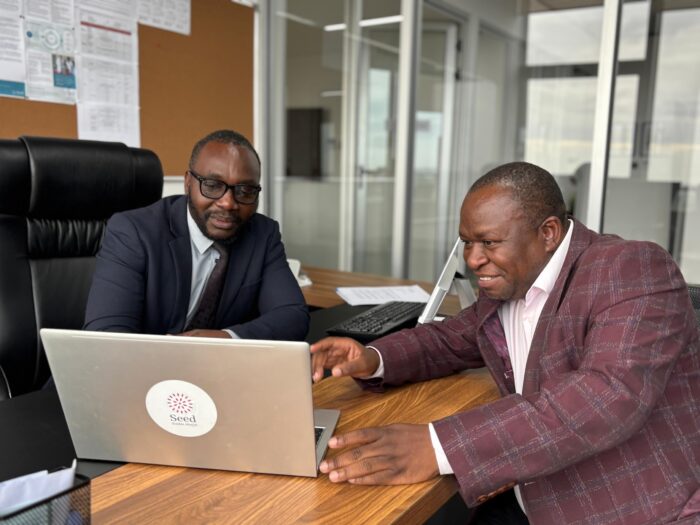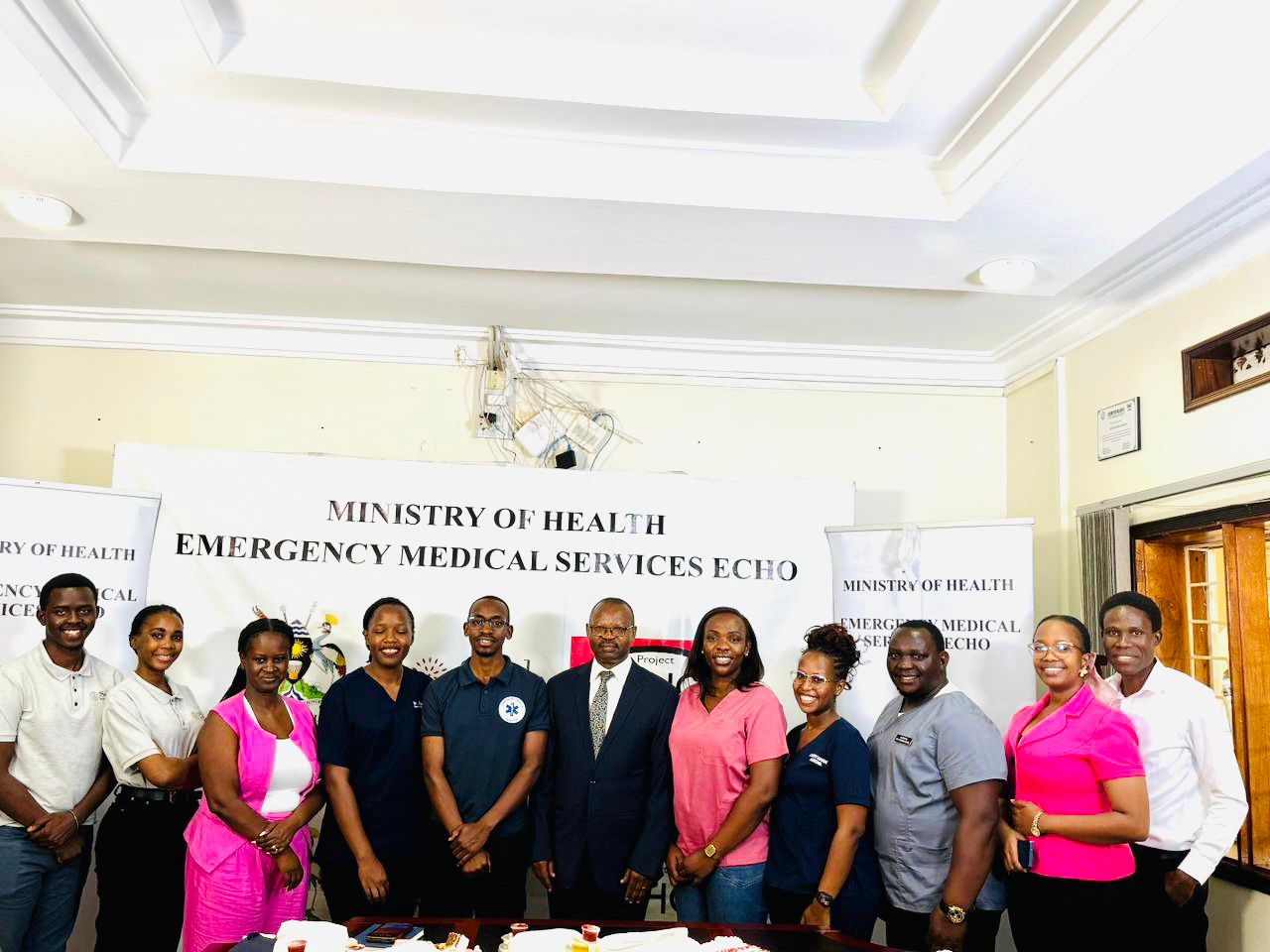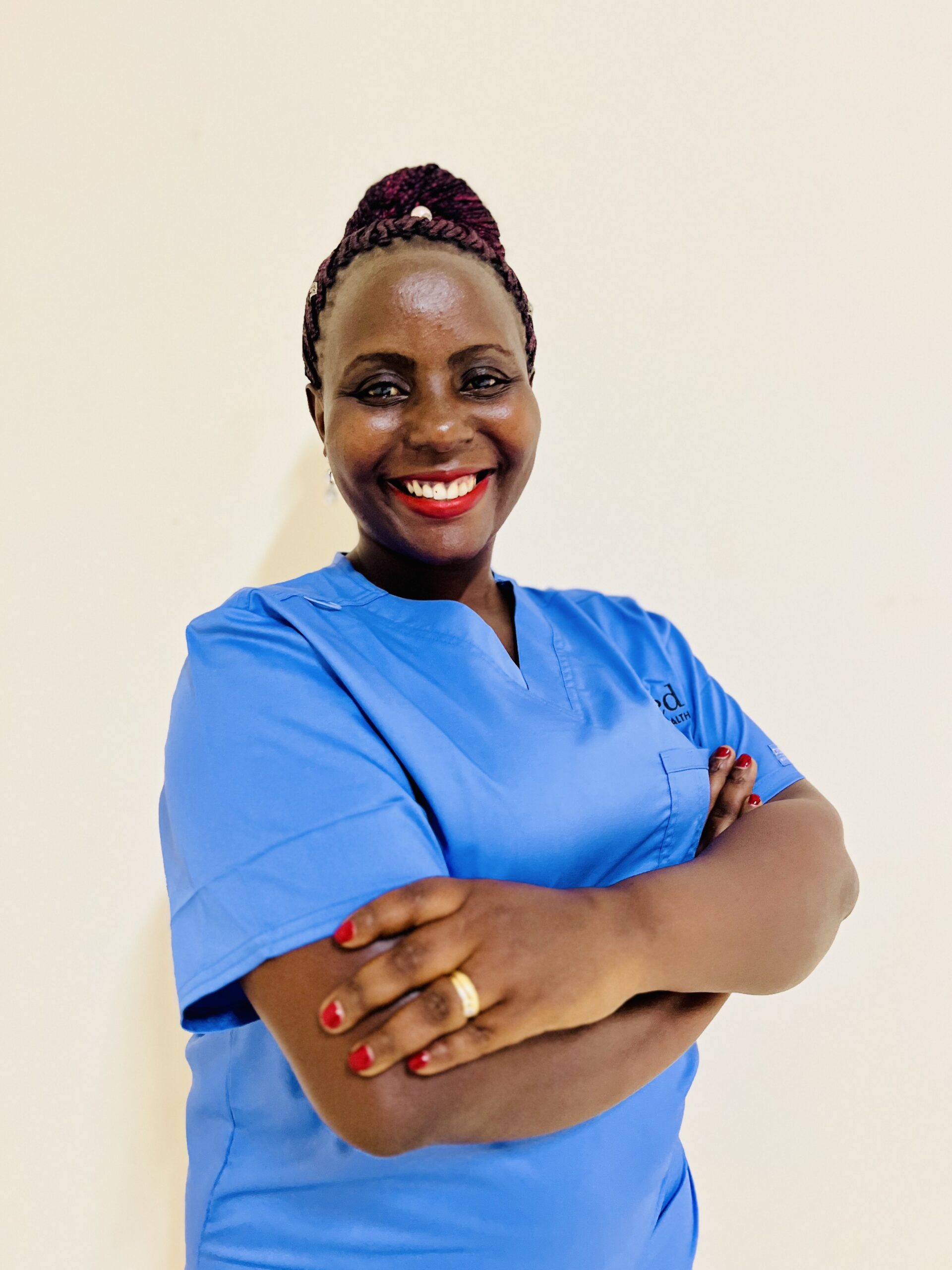
Meet Dr. Chikusela Sikazwe: Leading with Heart, Strategy, and a Dash of Humor
We’re happy to introduce our new Country Director for Zambia, Dr. Chikusela Sikazwe. In this interview, we get a glimpse into his thoughtful and passionate leadership style, and how he brings both heart and strategy to his work. He shares some of the surprises he encountered stepping into his current role, including a laugh-worthy hiring process and reflects on a refreshing culture of openness and inclusion. From memories of catching flying termites as a kid to reflections on books that shaped his thinking, his stories weave together personal experiences, big-picture aspirations for Zambia’s health system, and a strong belief in building for the long haul.
This interview has been edited for length and clarity
What did you dream of becoming when you were younger, and how does that dream show up in your life today?
Growing up, I was drawn to adventurous and impactful work—something that could bring life-saving change to communities, even outside the health sector. Before university, I volunteered at a local hospice in my community during the height of the HIV pandemic. That experience sparked a deep commitment to community-based work and social development. At university, I continued on this path by joining a legal rights organization focused on combating HIV-related stigma and discrimination, which was rampant in the early 2000s.
I entered the development sector formally in 2006, working in HIV and volunteer services. Zambia was undergoing significant socio-economic shifts, and my work naturally evolved with those changes. While I briefly explored the private sector, I found myself consistently drawn back to the development space. It’s where my values align, where I feel most fulfilled, and where that childhood dream of making a difference truly lives on.
Who’s your role model and what’s one lesson they taught you that still sticks today?
My biggest role models were my father, Francis Chikusela Sikazwe, and Zambia’s founding president, the late Dr Kenneth David Kaunda. From an early age, they both instilled in me a deep belief that life should be lived for others. My father would often ask, “How do you want to be remembered? Not for what you’ve accumulated, but for the impact you’ve made.” Similarly, President Kaunda emphasized that what truly matters is how your life reflects on others. These ideas stuck with me and shaped my values early on.
That belief has guided how I live and work. I’ve always been drawn to roles that serve a broader purpose, whether through my formal work or volunteer efforts in teaching, gender advocacy, or community development. I hold close the idea that, like the sun and the flower that give without keeping anything for themselves, we too are meant to give back.
What drew you to Seed Global Health and the role you are in?
My first interaction with Seed was around 2021, when I supported a training needs assessment that Seed undertook at one of its partnerships. This resonated with my passion for human resources for health (HRH). While my career began in HIV prevention related work, in 2008, I transitioned into the HRH space, helping Zambia resolve its HRH crisis by addressing pipeline-related challenges.
I worked on projects that provided technical assistance to the Ministry of Health on Zambia’s first National Training Operational Plan aimed at increasing the HRH pipeline, supported optimizing recruitment and deployment systems for health workers, and expanded healthcare worker training programs.
At the time, Zambia was facing a severe shortage in human resources for health—producing as few as 25 to 50 doctors annually, with a considerable number serving in administrative roles rather than clinical ones. Later, I moved into maternal and neonatal health, shifting the focus from increasing workforce numbers to enhancing provider competence and quality of care across the country.
When I came across the opportunity at Seed, it felt like a natural fit. Over more than a decade, I had worked separately on health workforce expansion, provider competence, and system advocacy. Seed brought all three together. I was especially drawn to its holistic approach: investing in health workers, strengthening practical training, and advocating for sustainable, locally driven change. Seed’s model also stood out for its responsiveness to country-specific needs and its government-centered approach. As someone with deep roots in HRH, it was exciting to join a team where I could contribute across multiple areas and continue building systems that last.

Being that you are new in this role, what has surprised you since stepping into it?
One of the biggest surprises stepping into this role was the interview process itself. It was rigorous! I remember being told, “We’re in a hurry, we need you to start immediately.” But then, just as I’d finish one panel, I’d be told there’s another coming. I’d joke, “If this is urgent, you’ve got a funny way of showing it!” But in hindsight, it reflected Seed’s thoroughness and commitment to finding the right fit—not just for the role but for the organization as a whole.
What truly stood out once I joined was how inclusive and integrated Seed’s culture is. In many organizations I’ve worked with, there’s a clear hierarchy—you have local hires, third-country nationals, and international hires, each with different levels of access and voice. At Seed, that distinction felt flattened. I was surprised by how much space there was to provide organizational feedback, even beyond one’s technical area. People actually listen, follow up, and refer to what you’ve shared. It’s not just lip service—there’s a real loop of engagement and action. That kind of culture, where even junior staff can interact with leadership and where ideas circulate freely, is rare.
I’ve worked in and supported many organizations, but this level of openness where even the CEO is accessible and responsive, is unique. It’s a strength that sets Seed apart. My only curiosity, looking ahead, is how we’ll sustain this culture as the organization grows. It’s much easier to maintain flat structures in small teams, but preserving this kind of democratic involvement in a larger setup will take intentional effort. Still, it’s a model worth protecting.
What’s your aspiration for the health system in Zambia, and how do you see Seed helping make that a reality?
My aspiration is to see a well-resourced, robust, and responsive health system in Zambia. One that is not only sustainable and operationally efficient but also adaptive to the ever-changing realities of the region. Zambia’s unique geographic position as a land-linked hub between the Atlantic and Indian Oceans, surrounded by countries facing economic and conflict-related instability, places us at high risk for cross-border communicable diseases and climate-related health impacts. To meet these challenges, we need a dynamic health system that can anticipate and respond to emerging threats, both nationally and regionally. Building such a system demands consistent investment—not only in infrastructure and financing but, most critically, in people.
That’s where Seed Global Health fits in. Seed’s commitment to long-term human capital development through support for programs like emergency and family medicine at the University of Zambia, stands out in a sector often focused on quick wins. By working across education, practice, and policy, Seed is uniquely positioned to support Zambia build a resilient health workforce. What makes Seed especially effective is its collaborative and flexible approach; it doesn’t impose rigid donor-driven agendas but instead co-creates solutions with local institutions and government. Looking ahead, I believe Seed can deepen its impact by embracing adaptive and scenario-based planning, anticipating future disease burdens and building responsive strategies before crises emerge. This proactive posture will be essential in maintaining relevance and effectiveness in an increasingly uncertain global health landscape.
What’s a favourite food that brings back memories, and who do you think of when you eat it?
For me, food isn’t just about taste, it’s about memory and meaning. I’ve never really had a “favorite” food; I’ve always believed that if I can eat it, then it’s good enough. But if I had to pick something that stands out from my childhood, it would be Inswa—flying termites. These little insects would emerge after heavy rains, especially at night when drawn to light. Growing up on a farm with lots of cousins around, we had a full house—sometimes 10 or 15 boys all together. We had one mission when the Inswa came out: catch as many as possible. We’d unscrew all the security lights around the house except one, luring the insects into a big bucket of water below. My father hated when we did this. He worried more about his chickens and the security of the farm, but we were more interested in the hunt for Inswa.
Once we caught them, we’d sneak into the kitchen and commit our second “crime”: grilling them using our mum’s butter and grill, which she never approved of. We knew we’d get in trouble. Beatings and punishments followed, but the thrill, the laughter, the food, and getting caught together made it all unforgettable. Today, even though I can’t eat them anymore (they’re harder to find and I don’t have the energy to go searching in local markets), just seeing them after a rainstorm stirs up deep memories. It reminds me of a simpler time; no stress, no taxes, no worries about dinner—just the joy of being young, wild, and free with food we had to catch ourselves.
What’s a book or story you’ve read that has stayed with you, and why?
Out of the books I’ve read, a few stand out for their deep impact, especially the biography of Nelson Mandela. What stood out most was his ability to forgive and embrace the very people who once oppressed him. When he had the power to retaliate, he instead chose unity, putting the greater good above personal bitterness. That sense of perspective—of choosing the bigger story over the immediate personal gain—is something I continue to carry with me. These lessons have been reinforced by other books too, like The Seven Habits of Highly Effective People and the Four Disciplines of Execution (4DX), which I’m currently reading. A common thread in all these works is the power of habit. Each of these leaders succeeded not just through vision, but through consistent, disciplined action. That emphasis on long-term, structured effort is shaping how I now approach leadership and team development in my own life.

